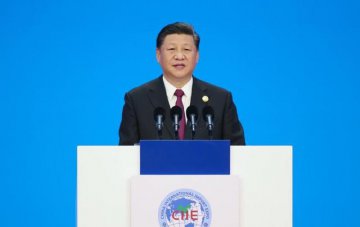
New-home sales in China’s biggest cities rose 26% in March compared with the same month in 2018, according to data from 23 listed developers compiled by Nomura. That marks an abrupt reversal of the trend in January and February, when official data showed a contraction.
Economic stimulus measures seem to be coming into play. Restrictions on developers issuing bonds were loosened late last year and a host of property-related policies are being pursued by local governments, which have been granted greater autonomy in the sector by Beijing.
Because of its capital controls and limited presence in international finance, direct spillovers from China’s financial system to the rest of the world are small. But its dominant position as a trading nation, with more imports and exports combined than any other country, means that the effects of financial developments on the domestic economy are felt far from home.
A 10% decline in demand for real estate and home construction would lead to a 2.2% reduction in Chinese output growth, according to the Kansas City Fed. That is twice the impact it would have had just a decade ago, when real estate played a more modest role in Chinese savings and investment.
At the same time as housing became more important to the Chinese economy, the Chinese economy became more important globally. A two percentage-point drop in Chinese growth this year and next would shave 0.5% off global growth by 2020, according to Oxford Economics.
The effects should work in the opposite direction if housing market activity and growth break higher, as now seems to be happening. China’s impact on commodity-exporting emerging markets such as Brazil and global inflation are well known, but its influence won’t end there.
Japan and Germany are in a prime position to benefit from any rebound. They have outsize exports to China relative to the size of their economies: Germany’s $110.69 billion of exports to China last year was four times France’s figure, while shipments from Japan, worth $144.45 billion, outstripped those from the U.S.
China’s land prices and transaction data deserve as much attention as European industrial production or U.S. retail sales. For the moment, things are looking up. Investors may have become too bearish on the slow-growth, export-dependent advanced economies of Europe and Asia.
Source: The Wall Street Journal
























Latest comments